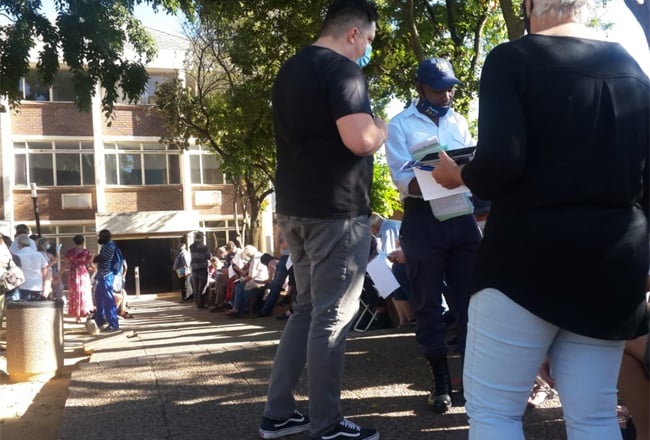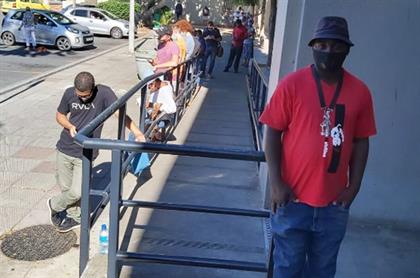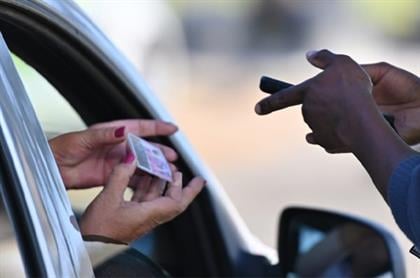

• A new online driving licence system has been launched in South Africa.
• Motorists can now book online slots, pay application fees, and opt where cards will be delivered.
• While the process might be simpler, there's still one massive downfall.
• For more motoring stories, go to Wheels24.
A new driving licence online system has officially been launched for South African motorists on Thursday (17 Feb). However, you'll still need to visit a driving licence testing centre for one crucial part. While this currently only applies to Gauteng and some Eastern Cape motorists, the online system will be rolled out nationally as all provinces have agreed to it.
In recent months Transport Minister Fikile Mbalula had mentioned a bouquet of services that would be rolled out across the country. On Thursday (17 February), Mbalula officially announced the online system's launch saying these services will drive a new service delivery model that places the citizen at the centre.
The following services on the RTMC's online platform are effective immediately:
• The online application, issuing and delivering a motor vehicle licence and disc to the motor vehicle owner.
• The online application, issuing and delivering a motor vehicle registration certificate to the titleholder of the motor vehicle for financial institutions, large fleet operators and motor dealers.
• The online application and payment for a booking for renewal, in person, of a driving licence card at a driving licence testing centre;
• The online application and payment for such driving licence card delivery to the holder concerned.
• The provision of an electronic copy of an accident report.
• The online notification of the change of ownership of a motor vehicle by the current title holder or owner will be implemented later.
Naturally, there's a catch to all of this: while you can make an online booking, pay for your application, and even opt for delivery of your driving licence card, you still need to visit a driving licence testing centre (DLTC) to have your fingerprints taken and have your eye test done. Having an eye test done at an optometrist will save time by standing in one less queue, but you'll still need your fingerprints to be done in person. And while you could make the process faster from the comfort of your home, you'll still need to visit said DLTC and stand in a queue.
South Africans living abroad with an expired driving licence card will also find the online system pointless as they'll still need to do biometrics in person too.
It's also interesting that the NaTis system was offline due to technical problems for motorists in George on Thursday (17 Feb), with the online services completely offline on Friday, just a day after the department and the RTMC announced the launch of its bouquet of services effective immediately. It's exactly the kind of issues which makes the new online system questionable.

These new features are a step in the right direction, but once again, South Africans need to fork out more money for essential services, and will be entirely dependable on costs, services and IT infrastructure.
A current backlog of about 2 million driving licence cards still needs to be cleared due to the only licence printing machine breaking down in November 2021 - at the time, the backlog stood at about 1.5 million. At the end of January, Mbalula announced the machine was back up and running, with an output of 400 000 cards being printed a month to reach its end of April deadline. He also announced that new driving licence cards would be implemented from October 2023.
However, driving licence cards that expired from 26 March 2020 to 31 August 2021 would only be valid until 31 March 2022.
Despite the new announcements, there was no mention of the additional R22 admin fee, which online users would have to add when making their R250 payment. This fee was quietly added to the Government Gazette earlier in January and will come into effect by the end of February.
OUTA CEO Wayne Duvenage says online bookings for vehicle licences shouldn't come at a massive cost to society.
"We acknowledge the government's long overdue arrival to the digital age, following their introduction of online services for the issuing of vehicle licenses, change of ownership and drivers licence by the Road Traffic Management Corporation.
"However, going online should never come at massive increased costs to society. In the normal world, transacting online with any institution should be far cheaper than going into their offices, barring delivery fees. OUTA objected to these massive increases in the recent gazette notices. We believe there should be no increases in the online transaction fees applied to these services when compared to the service being rendered at their centres," says Duvenage.
The Automobile Association says the development of online traffic services for South Africans is long overdue and necessary.
"This development is an essential step for motorists frustrated by inefficient service delivery.
"There are, for the AA, two crucial issues which must be considered:
1. The cost of services offered online will be a determinant of usage, and,
2. The reliability of the IT infrastructure which supports these services."
The minister also acknowledged that vehicle, learner, and driver licensing processes had been an inescapable challenge for a long time.
Mbalula said the driving licence application is changing for citizens from the time their book a learner's licence to passing out for their licence, and the same applies for vehicle licensing.

But why all the change?
Mbulala says the new system will eliminate incentives for corruption and take advantage of the technology revolution.
He says: "We have taken the bold step to modernise our systems and ride the digital wave to improve service delivery. The era of long queues and service centres that close at 15:30, forcing workers to take time off work to access traffic services, will soon become a thing of the past.
While the minister says motorists will be able to access most of the services they had to travel and queue for at a driving licence testing centre, they can now do it from the comfort of their homes and offices.
According to the transport department, this new process began two years ago to improve motorists' experience.
Motorists will also have an option to select how they wish to receive their documents. The RTMC will send documents to the Post Office nearer to the applicant or have them delivered to the applicant's address. This will eliminate long queues at the driving licence centre and save time for motorists.
Perhaps an important addition is that the online system has also been enhanced to allow financial institutions, insurance companies and vehicle dealerships to register vehicles directly on the NaTIS system.
Mbalula also says this will help combat rampant crime associated with the change of ownership of vehicles:
"The benefit of these services is that motorists and private companies will be transacting directly on the NaTIS, eliminating middlemen who fuel corruption. The additional enhancements on the system will allow vehicle owners to be alerted quickly if their vehicles have been cloned. Users of the system will also be able to pay their traffic fines on the same platform without a need to drive to separate places," he says.
There are also two new DLTCs in Gauteng managed by the RTMC in Midrand and Centurion; these centres operate from 7:00 to 21:00, from Monday to Sunday. We can only hope these operational hours could be implemented nationally.